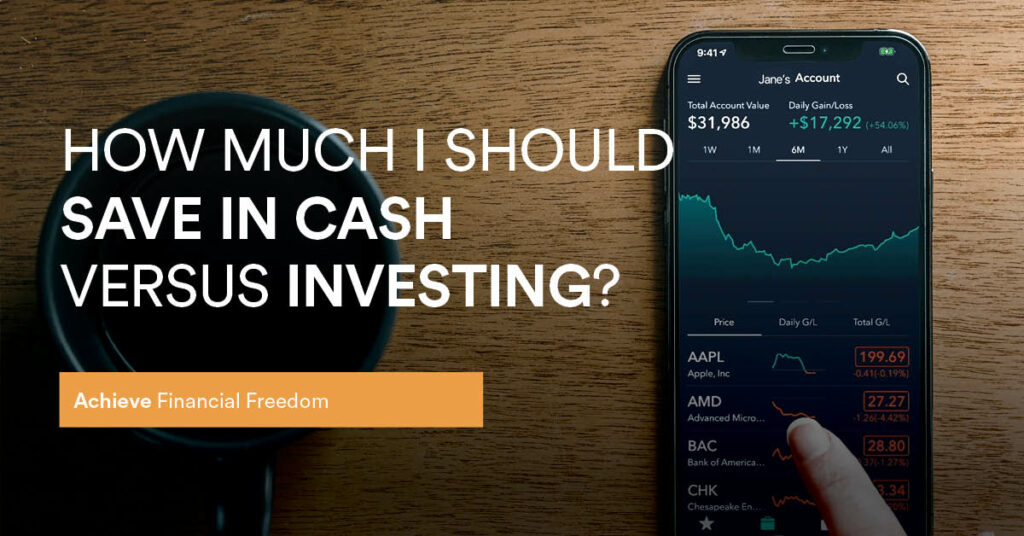One of the most popular questions I am asked is how much I should save in cash versus investing.
You should always save the following in cash:
- 3 months emergency fund
- Sinking fund for planned expenses
- Cash for big goals such as a wedding or house deposit.
Then any extra money you have should be put towards your investments.
Want to achieve financial independence?
You could spend the next 13 years learning about personal finance and putting your knowledge into action. Or you could take my FREE 10 day mini course and weekly emails. I’ll show you exactly how to become financially independent. My only question is, whats stopping you?
My approach to saving versus investing
I take the view that any saving and investing should be as simple as possible. It’s not that one is better than the other, but what is right for you at the current stage of your financial journey.
3-6 months emergency fund
If you are starting out on your financial journey, then once you have paid off all debt, it is common advice to start an emergency fund that covers at least 3 months of your living expenses.
Depending on your circumstances, some people choose to increase this to 6 months and I totally get that also. If you are at risk of losing your job or redundancy having an increased emergency fund will act as a sizeable buffer and help you weather a period where you may have no income. It would also help in an actual emergency where you need funds to fix or pay for the “emergency”.
Sinking fund for planned expenses
When you create a sinking fund, you put away a little each month into a savings pot for planned expenses. These planned expenses could be your annual recurring bills or savings for an upcoming holiday. With a sinking fund, the primary goal is to cover the expenses long before they are due. This will reduce the chances of you going into debt or creating a financial emergency.
Big goals over the next 3-5 years
Finally, in cash, I suggest you give consideration to saving for your bigger life goals that you expect to happen in the next 3-5 years. A new car, the deposit for a house or money to pay towards your mortgage when it’s up for renewal. Or it could be saved for your wedding. Whatever your bigger goals are, putting your money into savings and not investments allows these to grow without the volatility of external factors and ensures your money is safe.
Make sure to invest in your pensions for tax advantages or employer matches and depending on your investing strategy you may want to invest in your ISAs. After that, if you have any money left over to invest, open up a General Investment Account and use it to invest your money.
When should I invest each month?
Once you have put money towards each of your short and long-term goals listed above, then any additional money should be put to work through investing. Investing is the secret to long-term wealth and if you start early, the compounding effect of investing will help you grow your wealth well in advance of the money you contribute.


